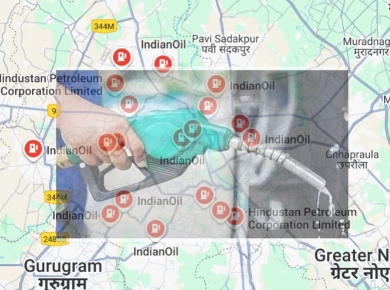Finding a great deal on a used car can feel like hunting for treasure in a vast sea of options. With so many makes, models, and price points out there, navigating the landscape of used vehicles can be daunting. However, there are methods and insights that can help streamline the process, ensuring you get value for your money without the hassle. Having gone through this experience multiple times, I’ve learned some invaluable tips that can make your journey smoother and more rewarding.
Understanding Your Needs
Before diving into the search, it’s crucial to define what you need from your vehicle. Are you looking for a reliable commuter car, a family-friendly SUV, or perhaps a sporty coupe? Each category has its own strengths and weaknesses, and understanding your requirements will narrow your search significantly.
Assess Your Lifestyle
Consider factors like your daily commute, how much cargo space you need, and whether you often drive in urban or rural settings. For example, if you have a long commute, fuel efficiency should be a priority. If you frequently transport kids and gear, look for spacious interiors and safety ratings. This clarity will not only guide your selection but also help you avoid getting sidetracked by shiny features that don’t serve your practical needs.
Setting a Budget
Once you have a clear idea of what you need, it’s time to establish a budget. This step is critical; it sets the parameters for your search and helps avoid the temptation of overspending.
Consider Total Ownership Costs
While the sticker price is important, remember to factor in other expenses such as insurance, maintenance, fuel, and registration fees. For instance, a car that seems like a bargain at first glance may have high insurance premiums or be notorious for expensive repairs. Research the specific models you’re interested in to get a comprehensive picture of what ownership will cost you over time.
Researching Options
With your needs and budget in mind, it’s time to hit the books—or, in this case, the websites. Platforms like Edmunds provide a wealth of information, including expert reviews, consumer ratings, and pricing comparisons.
Utilizing Online Tools
Take advantage of online car valuation tools to get an idea of fair market prices. Websites like Edmunds allow you to filter listings by mileage, condition, and location, making it easier to hone in on the best deals. Don’t shy away from reading customer reviews; they can reveal insights about reliability and common issues that may not be apparent from the specifications alone.
Inspecting the Vehicle
Finding a car that meets your criteria is just the first step; the next is ensuring it’s in good condition. Always conduct a thorough inspection before finalizing any purchase.
Trust Your Gut and Use a Checklist
Bring along a checklist of things to look for: tire condition, wear on the brakes, and fluid levels are just a few examples. If possible, have a trusted mechanic inspect the vehicle. This step can save you from unexpected repair costs down the line. Be wary of red flags—if the seller seems evasive or if the vehicle has a questionable history, it might be time to walk away.
Negotiating the Price
Once you’ve found a vehicle you like, it’s time to negotiate. Many buyers feel intimidated by this step, but it’s an essential part of getting the best deal.
Be Prepared to Walk Away
Know the maximum you’re willing to pay, but also be prepared to leave if the price isn’t right. Sellers often expect some negotiation, so starting below your budget can allow room for discussion. Present your research and any findings from your inspection to support your offer. A well-informed buyer is a powerful buyer.
Finalizing the Purchase
After reaching an agreement, ensure all paperwork is in order before signing anything. Double-check the title transfer process and make sure you understand any warranties or return policies.
Don’t Skip the Test Drive
Always take the car for a test drive. Pay attention to how it handles, listen for any unusual noises, and test all the features. This step is your final chance to confirm you’re making the right choice.
Conclusion
Finding a bargain on a used car doesn’t have to be overwhelming. By understanding your needs, researching options, and following a structured approach to inspection and negotiation, you can make an informed purchase that suits your lifestyle and budget. Remember, the goal is to find a vehicle that not only meets your requirements but also offers peace of mind. So take your time, do your homework, and go into the process equipped with knowledge and confidence. Happy car hunting!



